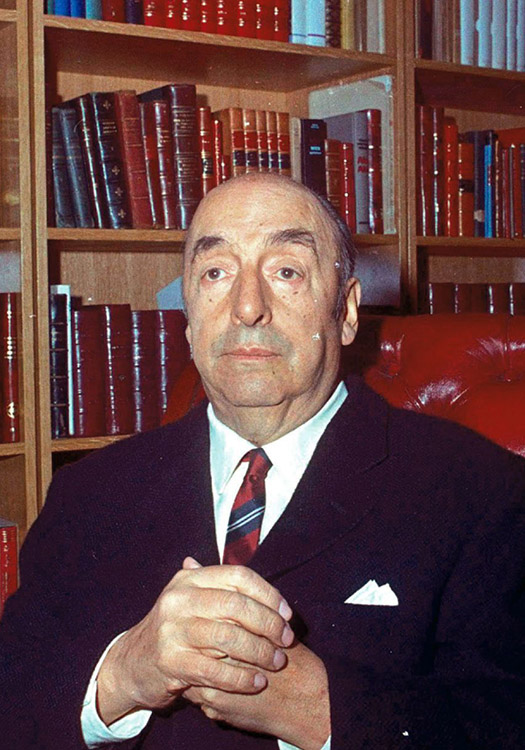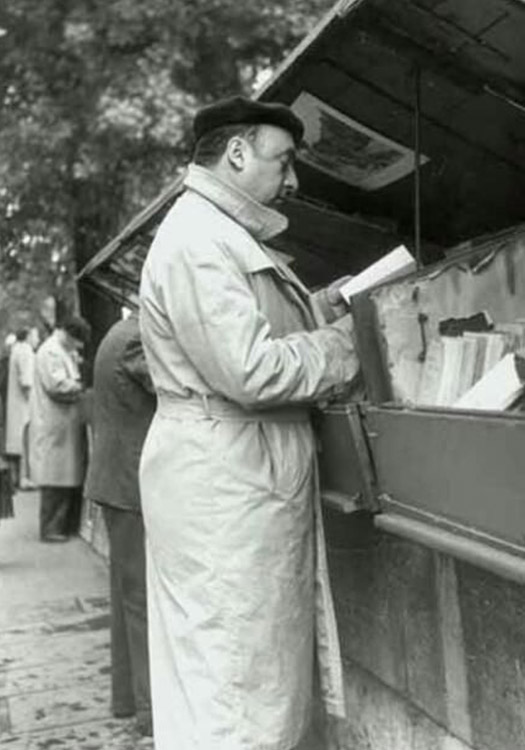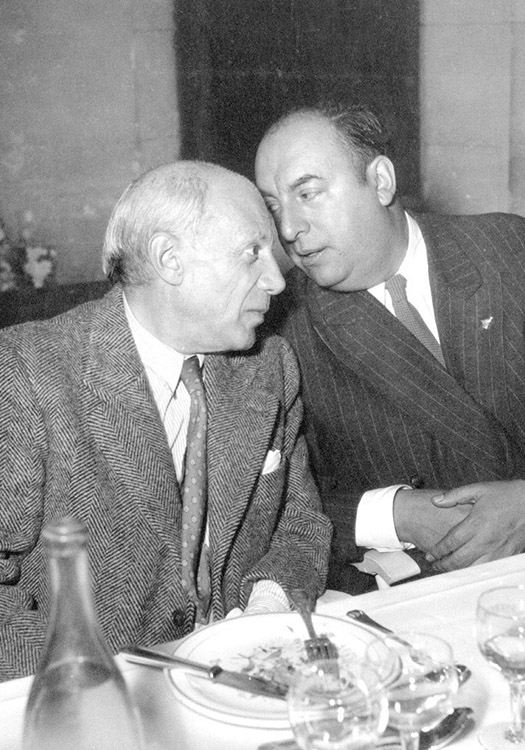Investigation: Norma Alcamán
Pablo Neruda, 80th member of the Chilean Bibliophile Society, in which he participated from the beginning, was a bibliophile in every sense of the word. In his personal library, there were more than 11,500 books, in addition to letters, manuscripts of great historical and cultural value, which are currently preserved both at the Pablo Neruda Foundation and at the University of Chile, his Alma Mater, where he studied French Pedagogy. and to which he donated part of his collections in 1954.
From a very young age, he was an avid reader and seeker of ancient, unique, rare and valuable literary works, a passion that was facilitated by his many trips and stays in different countries.
Of Chilean literature, he owned a copy of La Araucana, from 1632 (the first edition is from 1569). As we know, Neruda also had a special predilection for France and Italy. With regard to Italian works, he had a copy of Orlando Furioso, by Ludovico Ariosto, from 1561 (the 1st edition is from 1532) and a copy of Dante Alighieri’s The Divine Comedy, from the year 1529. Also, an edition of Triumphs de Petrarca, edition of 1484 (1st ed. original: between 1351 and 1374. Editio princes: Venice, Vindelino da Spira, 1470). Of French works, he owned the Encyclopedia of Diderot and D’Alembert, of 1751. He also owned the proofs of the workers of the sea (1866), by Victor Hugo, with corrections around the edges, handwritten by its author.
With reference to Spain, a country that was also one of his favorites, he had an edition of Don Quixote de la Mancha, from 1617. In addition, of North American literature, he owned the Complete Works of Edgar Allan Poe, published in New York in 1895.
Little by little, Neruda built his beloved library with special care and dedication. It was exquisite in the details of editing, paper, stitching. He liked short runs, such as Los Versos del Capitán, with only 44 copies, because he conceived of his books in terms of collections. Also, several of his books unite literature and painting, presenting poems with works by Mario Toral from Chile, Guayasamín from Ecuador and Picasso from Spain. Ultimately, like any refined bibliophile, he treasured books as much for the value of the ideas conveyed as for the form. In this sense, he considered the book as an art object in itself.


